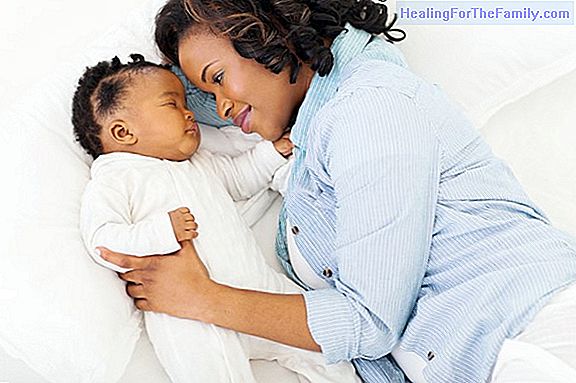The first days of the child adopted at home
As the day approaches when the adopted child will finally arrive home, the nerves increase. This is normal. They are positive nerves and full of illusion. Many doubts arise about whether the child will be comfortable with his new parents, if he will love them ... because they already feel that they
As the day approaches when the adopted child will finally arrive home, the nerves increase. This is normal. They are positive nerves and full of illusion. Many doubts arise about whether the child will be comfortable with his new parents, if he will love them ... because they already feel that they love him! His adoptive parents have spent so much time thinking about him and waiting for this moment that they feel he is already his son.
At this point in the adoption it is very likely that the parents already know their child after of small controlled meetings by the institutions that seek adaptation. This makes that, together with the long waiting time, the emotions are greater.
What the adopted child feels

But as we always say, the experience of adoption, in being one more form of paternity, has different nuances depending on its characteristics. A small child who can not tell us what happens to him is not the same as an older child who has conscious memory; It is not the same a child who is separated from siblings that a child who was alone; a child who leaves a center is not the same as a child who comes from a family; It is not the same as a child for whom we are the first family with which it is a child who has gone through different families and adoption processes that have not worked; A child who speaks our language is not the same as a child from a foreign country. In adoptions we have to take care that our son has a part of his life that we do not know.
Therefore, we must bear in mind that the emotions of the child will be ambivalent. From the fear of going to the unknown to the illusion of a new family without forgetting that not all children know exactly what the process consists of because, sometimes, they are too small to understand it at all.
10 tips for parents who have just adopted a child
1. Convert that first moment into something intimate and quiet only with members of the family unit.
2. Do not try to explain a thousand things at once or overwhelm him with questions.
3. Do not look for him to hug him, nor kiss him nor force gestures of proximity and affection. We must always generate contact indirectly: helping him to dress, touching an arm or back, ...
4. Anticipate what is going to happen so that he knows the customs of the house. For example: now, in what I prepare dinner, if you like you can take a shower and put on your pajamas so that you are more comfortable.
5. Do not fall for giving her a thousand gifts or giving her all the whims she wants because it is the first day since it will not always be like that.
6. Do not force the presentations even if your family and friends are willing to meet the new member of the family. We have to prevent the child from being overwhelmed.
7. Be flexible. Think that we do not know anything about their history and sometimes something that does not matter to us, yes and vice versa. In addition, we have to prioritize. What is more important: what suits your new school or do you learn the verbs in English?
8. Respect your name and your possessions because they represent your identity and in a new environment is the only thing you have left. It does not matter if the toys or clothes you bring are in poor condition and have new things; Let him decide if he wants to get rid of his things and when.
9. Never force him to call you mom or dad; those things go by themselves.
10. If the adoption is in pairs, it is important that, among the parents, you are clear about how you are going to proceed and the limits that will be determined. Everything is new for the child, so the adults who take responsibility for it must convey that they know what they are doing.
It is very important to have patience and observe the child. Your expressions and reactions to things that are happening will give you a lot of information about how you feel, what you like, ... and it is he who should set the pace of events.












